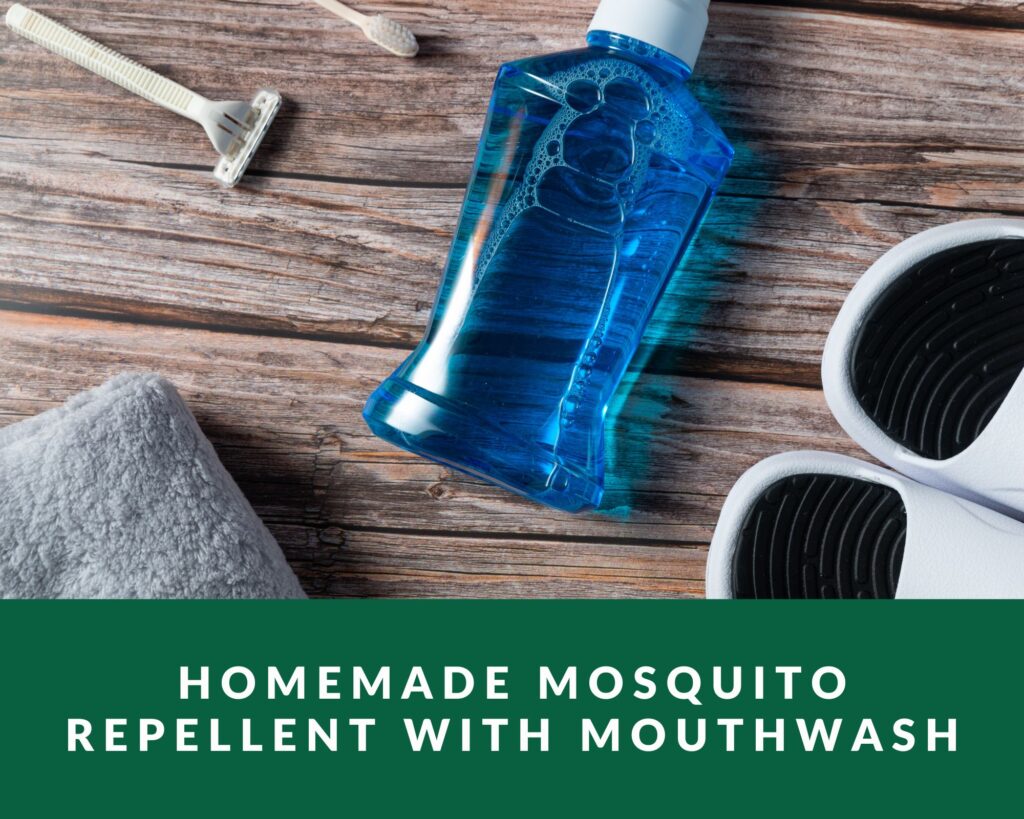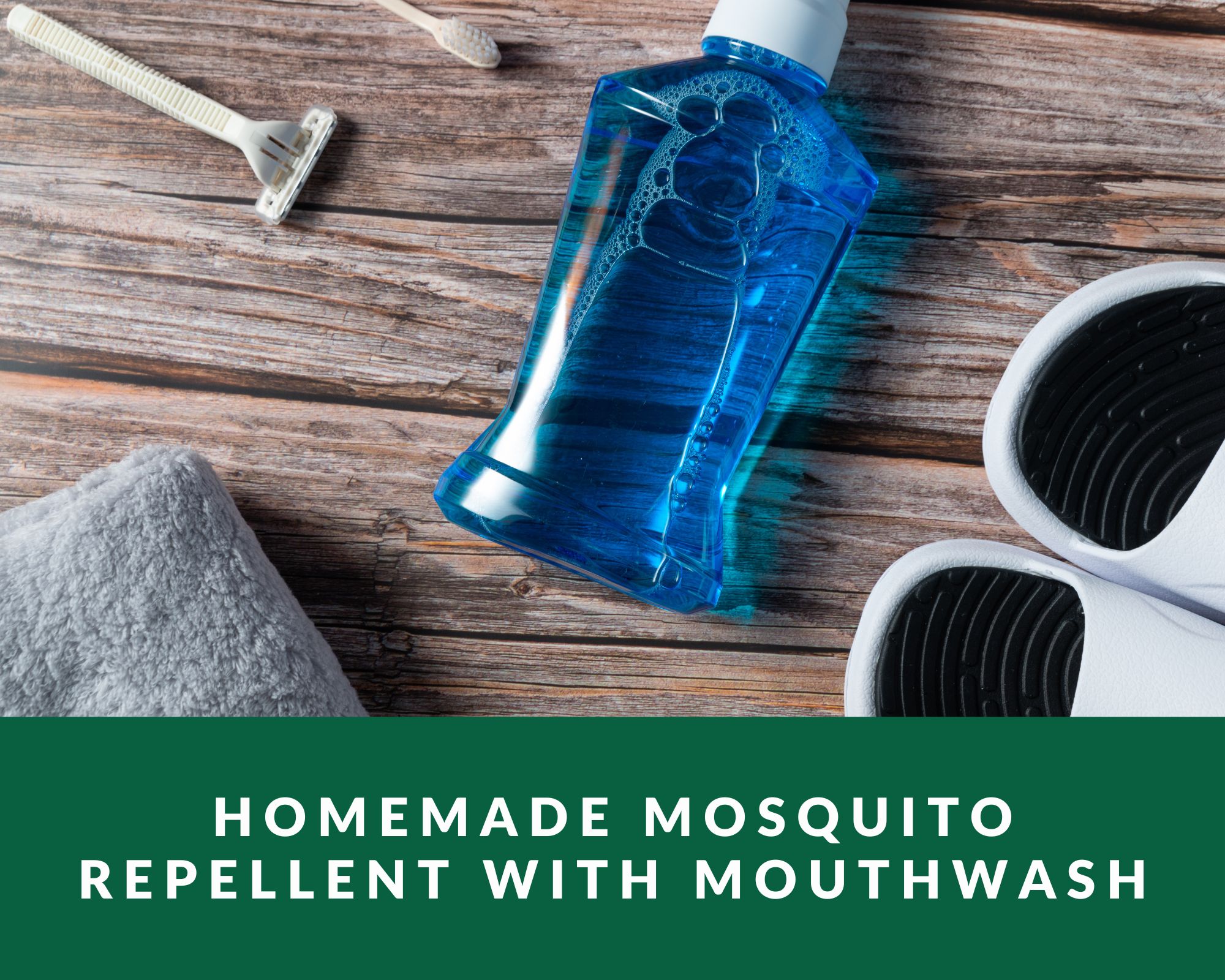
Are you tired of getting bitten by mosquitoes every time you step outside? If you’re looking for a natural and effective way to repel these pesky insects, homemade mosquito repellent with mouthwash might be the solution you need. By combining mouthwash with essential oils, you can create a DIY mosquito repellent that is both safe and easy to make. In this article, we’ll walk you through the steps of making your own homemade mosquito repellent with mouthwash and share tips for using it effectively.
Is this yet another gimmick to get consumers to buy, or is there perhaps some truth to this tale? Is using mouthwash effective at preventing mosquito bites?
What is a mouthwash
Mouthwash is a liquid that is held in the mouth, swished around, and/or gargle. It is also known as a mouth rinse or oral rinse. Despite not being a substitute for brushing or flossing, some mouthwashes have anti-cavity, germ-killing, and plaque-prevention properties.
Do mouthwashes really keep mosquitoes away?
Essential oils, which are frequently used to deter mosquitoes and other insects, are typically found in mouthwashes. The majority of mouthwashes contain the mosquito-repelling oils peppermint, thyme, wintergreen, and eucalyptus. It is possible to apply mouthwash to the skin, however, it is highly drying.
Mouthwashes may include essential oils that repel mosquitoes, however, they also contain significant levels of alcohol. Alcohol will remove natural oils from the skin even though there is no proof that applying it to the skin frequently is hazardous. This denotes extremely dry skin. This is bad news if you currently use a moisturizer.
Additionally, since essential oils’ repellent properties often only last an hour or two, frequent administrations are required. Therefore, applying mouthwash to your skin is probably not the greatest technique to ward off mosquitoes.
The alcohol rapidly dissipates when mouthwash is sprayed into the air or used as a yard or household spray. Therefore, a spray will only keep mosquitoes away for a brief period of time. Although it must be reapplied or sprayed frequently, mouthwash does help keep mosquitoes away.
Mouthwash beer mosquito spray
The mixture of chemicals in this repellent for mosquitoes is intriguing. Because these components are common in most homes and because they work well together to keep mosquitoes away. You could attempt it.
This DIY mosquito repellent with mouthwash epsom salt and beer can be sprayed all over the yard or straight onto your skin using cotton wool.
Some estimate that you won’t need to reapply for roughly two and a half months. However, alcohol included in the majority of mouthwashes evaporates more quickly than water, therefore the residual effectiveness of this mixture might not be as great as promised.
Basic Homemade Mouthwash Mosquito Repellent
Here is a recipe for mosquito spray using mouthwash that you can easily make at home:
Ingredient
- 1 cup of mouthwash (preferably one that contains eucalyptol, menthol, or thymol)
- 1 cup of distilled water
- 20 drops of citronella essential oil
- 20 drops of eucalyptus essential oil
- Epsom salt
How to Make Homemade Mouthwash Mosquito Repellent
Simply combine all the ingredients in an empty bottle to prepare the mouthwash, and shake vigorously until the salt is completely dissolved. For maximum effectiveness, always give it a good shake before using it on your skin or in your garden.
Note:
- You may wish to use an organic mouthwash with a mint flavor when making your selection of ingredients.
- It is advised to get eucalyptus- or lavender-scented Epsom salt. Look for one that is both, even better.
- Any beer will do for this recipe, so choose the cheapest one when making your selection. But it has to be old. Mosquitoes find the carbon dioxide in alcoholic beverages like beer to be appealing.
Directions:
- Mix the mouthwash and distilled water in a spray bottle.
- Add 20 drops each of citronella and eucalyptus essential oils to the spray bottle.
- Shake the bottle well to mix all the ingredients.
- Spray the solution on your skin or around your home to repel mosquitoes.
Benefits of using homemade mosquito repellent mouthwash
Making your own mosquito repellent at home is not only more affordable than purchasing it from a supermarket. Consequently, it will be much safer for people, animals, and the ecosystem.
To kill and deter pests, many insect and mosquito repellents contain chemicals. The ecosystem can be harmed by these substances, and both people and animals may be at risk. Often, insect repellents are particularly hazardous to marine animals.
As a result, the only way to ensure both our own and our pets’ safety is to use products that are entirely natural and free of DEET.
What are the cons of using homemade mosquito repellent with mouthwash?
However, there is a drawback to using natural yard mosquito repellents. Compared to insect repellents that use chemicals as their base, they have a shorter shelf life. But because they are chemical-free and all-natural, you can reapply natural ones as frequently as you choose.
Does Listerine keep mosquitoes away?
Some people believe that Listerine repels mosquitos. This is attributed to the strong scent of Listerine mosquito yard spray containing essential oils. This scent can mask the carbon dioxide and other odors that attract mosquitoes, thus making them less likely to bite. However, there have been few studies to confirm this theory.
It’s worth noting that Listerine is not a registered insect repellent and has not been tested for its effectiveness at repelling mosquitoes by any regulatory agency. Therefore, it’s probably not a reliable method for keeping mosquitoes away.
What next
As with the outlined DIY insect repellent, avoid getting mosquito spray in your eyes, near your eyes, or on cuts or wounds, and scratches.
You can spray a small amount of the natural insect repellent onto a piece of cotton wool and apply it to your forehead and cheeks if you frequently get mosquito bites on your face.

